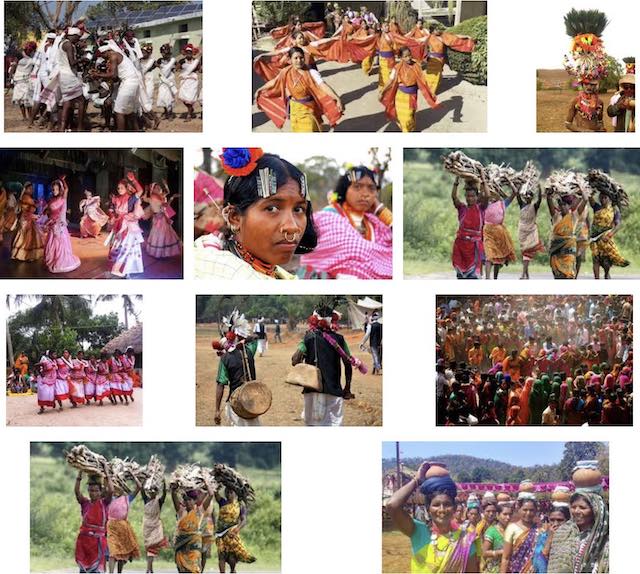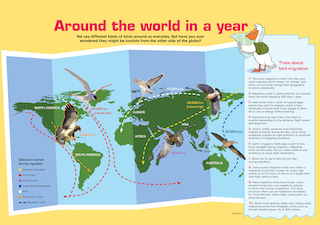Rabhas are among the nine plan tribe and fourteen hill tribes of Assam. The Rabhas belong to the Indo-Mongoloid group of people and have similarities with other members of Bodo group such as Garos, Kachari, Mech, Koch, Hajong and others.
The Rabha community have a rich, multi-faceted and distinct culture of their own. The agricultural practices, food habit and belief systems of the Rabhas reflect a conglomeration of features from both the Aryan and Mongoloid culture. The Rabha society is matriarchal. The village economy is based on agriculture and both men and women work in the fields. The women love to wear colorful clothes that they weave themselves and they wear a lot of beads and silver ornaments. The Rabhas celebrate three main festivals and also observe Farkanti in remembrance of the dead kings of their clan. In the various festivals, both men and women sing and dance to the local instruments like the karra, flute and singa. The Rabhas are nonvegetarians and rice is their staple food.They brew a local beer called junga, which is consumed, not only is religious festivals, death, birth and marriage but also on a daily basis. The Rabhas prepare as many as ten different varieties of beer. This is one of the characteristics that distinguish the Rabhas from other tribes of the region.
The traditional economy of the Rabhas in general, is based on agriculture, forest based activities and weaving. In the past, the Rabhas used to practice shifting cultivation. They continued to cultivate the land with Gogo or bill-hook. Later they took up the job of settled cultivation and started cultivation with plough. Besides cultivation, hunting was also an old practice of Rabha people. Weaving was a traditional occupation of the Rabha women.
The Rabhas have a rich tradition of festivals. The festivals or ceremonies can be classified into seasonal and religious. Rabha people traditionally practice a few animistic rituals. However, today they more often follow a faith, which is a blend of some Hindu and a few animistic rituals. There are considerable differences in ritual practices among forest Rabhas who still live in the forest villages and the Rabhas that live in the villages as cultivators. The forest Rabhas follow traditional animistic practices tinged with some rituals of mainstream Hinduism. On the other hand village Rabhas have merged with local Hindus as far as their religious practices are concerned. […]
The research questions of the Proposed Study:
I) The cultural tradition of the community elder/artist I seek to study and document is specifically related to sub them of Indigenous Knowledge Systems. The main set of research questions central to my proposed project includes i)What is the place of Elephant in folk culture of Rabha society?
ii) How the traditional systems of Rabha to protect elephants?
iii) What are the traditional knowledge of Rabha community about management and catching of elephants?
iv) How the ethno medicinal knowledge help Rabha mahuts to keep their elephants healthy?
Source: Elephants in Ethnicity and Folklore of Rabha tribes of Assam | Tata Fellowships in Folklore
Address: http://indianfolklore.org/TataFellowships/?p=736
Date Visited: Sun Sep 11 2016 11:49:42 GMT+0200 (CEST)
[Bold typeface added above for emphasis]
Up-to-date reports by Indian experts and journalists
Search tips
Combine the name of any particular state, language or region with that of any tribal (Adivasi) community.
Add keywords of special interest (music, poetry, dance just as health, sacred grove and biodiversity); learn about the rights of Scheduled Tribes such as the “Forest Rights Act” (FRA); and the United Nations “Declaration on the Rights of Indigenous Peoples”, “Universal Declaration of Human Rights”, “women’s rights”, or “children’s right to education”.
Ask a question that includes “tribal” or “Adivasi”, for instance: “Adivasi way of life better?” (or “tribal way of life worse?”)
Specify any particular issue or news item (biodiversity, bonded labour and human trafficking, climate change, ecology, economic development, ethnobotany, ethnomedicine, global warming, hunter-gatherers in a particular region or state, prevention of rural poverty, water access).
For official figures include “scheduled tribe ST” along with a union state or region: e.g. “Chhattisgarh ST community”, “Himalayan tribe”, “Scheduled tribe Tamil Nadu census”, “ST Kerala census”, “Particularly Vulnerable Tribal Group Jharkhand”, “PVTG Rajasthan”, “Adivasi ST Kerala”, “Adibasi ST West Bengal” etc.
In case the Google Custom Search window is not displayed here try the following: (1) toggle between “Reader” and regular viewing; (2) in your browser’s Security settings select “Enable JavaScript” | More tips >>
Note: hyperlinks and quotes are meant for fact-checking and information purposes only | Disclaimer >>
List of websites covered by this Google custom search engine
Academia.edu (platform for academics to share research papers) – www.academia.edu
Archive.org – https://archive.org
Centre for Science and Environment – https://www.cseindia.org
Current Conservation – https://www.currentconservation.org
Development and Cooperation (D+C) https://www.dandc.eu
Down To Earth (India) – www.downtoearth.org.in
India Environment Portal – www.indiaenvironmentportal.org.in
Harnessing Nature Magazine – https://harnessingnature.online
Mongabay-India – https://india.mongabay.com
M S Swaminathan Research Foundation – www.mssrf.org
Navdanya (protecting India’s biodiversity based food heritage) – https://navdanya.org
Third World Network (Penang, Malaysia) – https://twn.my
The Shola Trust (nature conservation in the Nilgiri region) – www.thesholatrust.org

Indian online periodicals and platforms | Images view >>
~ ~ ~
Personalize your CustomSearch by combining other search words >>
(e.g. name of a tribal community and region, a craft, or dance and puppetry)
Research the above issues with the help of Shodhganga: A reservoir of theses from universities all over India, made available under Open Access >>
Note: hyperlinks and quotes are meant for fact-checking and information purposes only | Disclaimer >>
“If we are to halt the destruction of ecosystems, we need to understand how closely biodiversity and cultural diversity are intertwined. Perhaps it is time to reverse the gaze and begin to learn afresh from Adivasis.” – Felix Padel & Malvika Gupta in “Are mega residential schools wiping out India’s Adivasi culture?” (The Hindu, 13 February 2021) | More about the role of tribal communities in preserving India’s biodiversity and ethnobotany >>

Indian online periodicals and platforms | Images view >>
~ ~ ~
Personalize your CustomSearch by combining other search words >>
(e.g. name of a tribal community and region, a craft, or dance and puppetry)
For additional learning resources visit the website of the Centre for Science and Environment (CSE), “a public interest research and advocacy organisation based in New Delhi”:
Communication for Awareness
CSE’s publications and informational products have been its strength and they have always combined research and readability to get the message across.

CSE’s tools for awareness raising are periodicals, publications, films/short spots, briefing papers, exhibitions, posters and other products. CSE’s informational products reach people in more diverse ways such as features service, website and e-news bulletins. […]
Source: About CSE
URL: https://www.cseindia.org
Date Visited: 10 July 2022
See also
Accordweb.in | Accord | Articles by co-founder Mari Marcel Thekaekara | Shola Trust
Atree.org | Ashoka Trust for Research in Ecology & the Environment (posts)
Climate change | Audio | The Climate Question (BBC Podcast)
Environmental history and what makes for a civilization – Romila Thapar
Equations blog (Equitable Tourism Options)
Information provided by Indian government agencies and other organizations (FAQ)
Nature and wildlife | Crocodile | Elephant | Tiger | Mangrove forest | Trees
PARI’s tales from tiger territory | People’s Archive of Rural India (PARI)
United Nations on climate change
What is the Forest Rights Act about?
Who is a forest dweller under this law, and who gets rights?
Tips for using interactive maps
Toggle to normal view (from reader view) should the interactive map not be displayed by your tablet, smartphone or pc browser
For details and hyperlinks click on the rectangular button (left on the map’s header)
Scroll and click on one of the markers for information of special interest
Explore India’s tribal cultural heritage with the help of another interactive map >>
